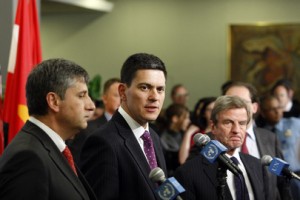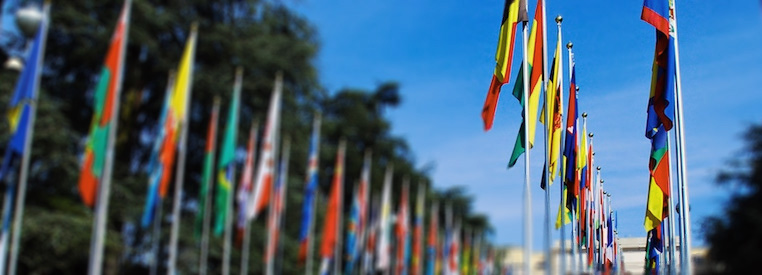U.K.| It would have been “right” even without WMD to remove Saddam, says Blair
From BBC:
Tony Blair has dropped something of a bombshell by admitting that he would have favoured removing Saddam Hussein regardless of any arguments about whether Iraq had weapons of mass destruction.
The admission, in an interview being broadcast on the BBC on Sunday, will convince cynics of British and American policy that they were right all along to say this was always about regime change.
It might also make those who laboured to produce the evidence suddenly seem rather irrelevant.
The former British prime minister’s statement goes beyond simply saying that he did believe at the time that Saddam had such weapons but feels now that the war was right in any case.
That is the conventional approach used by some people who supported the war and who think it produced a worthwhile result, though at a high price.
Others have now changed their minds and say it was a mistake.
Not Tony Blair. Typically, perhaps, he is not repentant. And more than that – he implies he would have gone to war anyway.
(Update: I have had a couple of e-mails contesting two elements of this story. One says that Mr Blair did not actually say he would have gone to war anyway. However, his words are very close to making such a statement. And he went on to say that different arguments would have had to have been used, indicating that this is no idle thought.
The other, from John Rentoul of the Independent who has followed events in detail points out that Mr Blair said the same thing in March 2006 when asked by Adam Boulton of Sky News if, knowing what he knew now, he would do it again. His answer was: “I most certainly would, yes.” It is fair to point this out. However it is also interesting I think that he is saying it again more than three years later and on the eve of appearing at the Iraq inquiry.)
These were his words when asked if he would have “gone on” if he had known then there were no WMDs: “I would still have thought it right to remove him.”
He even suggests in the interview how he would have justified such a war – “the threat to the region.” The argument would have been that with Saddam in power, there was a threat to the wider Middle East and a block on its democratic development.
[...]
More on the interview here, also from BBC.
UK| A Moratorium on Secret Evidence?
Editorial from the Guardian says the UK “government’s policy of imprisoning terror suspects without charge or trial on the basis of secret evidence may now be over.” Read more
UK| Milliband and Torture Evidence

David Miliband (centre), Secretary of State for Foreign and Commonwealth Affairs of the United Kingdom of Great Britain and Northern Ireland, addresses correspondents following a Security Council meeting on the situation in the Middle East. 11 May 2009.
Today sees the release by Human Rights Watch (HRW) of a searing exposé of the evidence against the British government of its complicity in the torture of people held in Pakistan suspected of terrorism.
The report, Cruel Britannia, is based on evidence collected by Ali Dayan Hasan, a senior HRW researcher who interviewed not only suspects and their lawyers but also members of the Pakistani ISI agency who were involved in the torture.
It corroborates and provides further detail for the investigative reporting on torture of the Guardian’s Ian Cobain, who recently won the Paul Foot award. [...]
More here from The Guardian.
